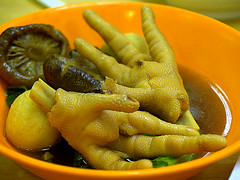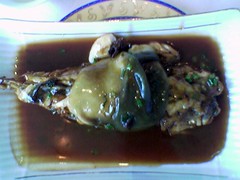"Mattel Inc., the world's largest toymaker, recalled almost 774,000 Chinese-made Barbie and Fisher-Price products whose paint may contain excessive levels of lead, its third recall in the past five weeks. The recall includes 675,000 Barbie kitchen, living room and other furniture items as well as 90,000 Fisher-Price Geo Trax Locomotive toys and 8,900 Bongo Band drums. No injuries have been reported, the U.S. Consumer Product Safety Commission said today in a statement. Mattel recalled more than 20 million Chinese-made products last month in two separate instances because the toys contained unsafe levels of lead paint or had magnets that children may be able to swallow. The toymaker, based in El Segundo, California, may have to find new sources of low-cost goods as China struggles to repair its reputation as an exporter. Mattel is pulling toys off shelves going into the holiday season, which accounted for 69 percent of 2006 sales. The world's most populous nation supplies 80 percent of the U.S. toy market. Shares of Mattel, which also makes Hot Wheels and Matchbox cars, rose 34 cents, or 1.6 percent, to $21.97 as of 4:25 p.m. in New York Stock Exchange composite trading before the recall announcement. (Details on the products being recall can be found at http://www.cpsc.gov
DEFINITION chi-na-free adj. A term proposed for use on food labels to show that products are not made in China.
CONTEXT In light of recent health and safety scares regarding Chinese-made food and products, a U.S.-based company called Food for Health International has announced plans to put "China-free" stickers on its goods. The subtext: These products won't make you sick or have harmful contaminants like melamine.
USAGE Given recent recalls of items from toys to toothpaste, China-free labeling could catch on, though consumers would do well to remember that not all products from China are tainted and not all tainted products are from China.
Tuesday, September 4, 2007
The New Chinese Take-Out
By Michael E. Telzrow
Lucia Cruz, a 74-year-old Panamanian grandmother, and at least 365 of her countrymen died last year from ingesting tainted medicine. Somehow a deadly chemical had found its way into cough syrup produced in a government laboratory. What Panamanians thought was a harmless over-the-counter drug turned out to be an elixir of death. Local doctors were mystified by Cruz's initial symptoms. Unable to explain the rapid onset of acute kidney failure, they directed her to a public hospital. More disturbing was the fact that Cruz was not alone.
Dozens of other Panamanians were exhibiting the same symptoms. Dr. Jorge Motta, director of the Gorgas Institute, a joint U.S.-Panamanian medical initiative conceived to combat avian flu, suspected an emerging infectious disease. "Was it West Nile or E. coli or some post-influenza disease? Could it run through the population?" thought Motta. Neither he nor others, like Dr. Cirilio Lawson, the general director of the Ministry of Health, knew what was sickening the population. They only knew that it was spreading quickly, and that it was deadly.
While Panamanian doctors and officials worked to discover the cause of the sudden syndrome, Cruz and dozens of others lay in agony as the supposed disease ravaged their internal organs. Wracked by nausea, vomiting, and high fever, Cruz watched as her limbs swelled to twice their normal size. Her painful journey came to an end just weeks after the onset of symptoms. Her doctors, fearful that she had succumbed to a deadly communicable disease, advised her family to cremate her body.
In the following months, government officials successfully identified the cause of the illness as diethylene glycol - a highly toxic organic solvent commonly found in anti-freeze and other industrial applications. Its source was contaminated cough medicine. By then over 300 Panamanians lay dead.....FULL STORY
Posted by
Blogmonger
at
1:01 PM
0
comments
![]()




